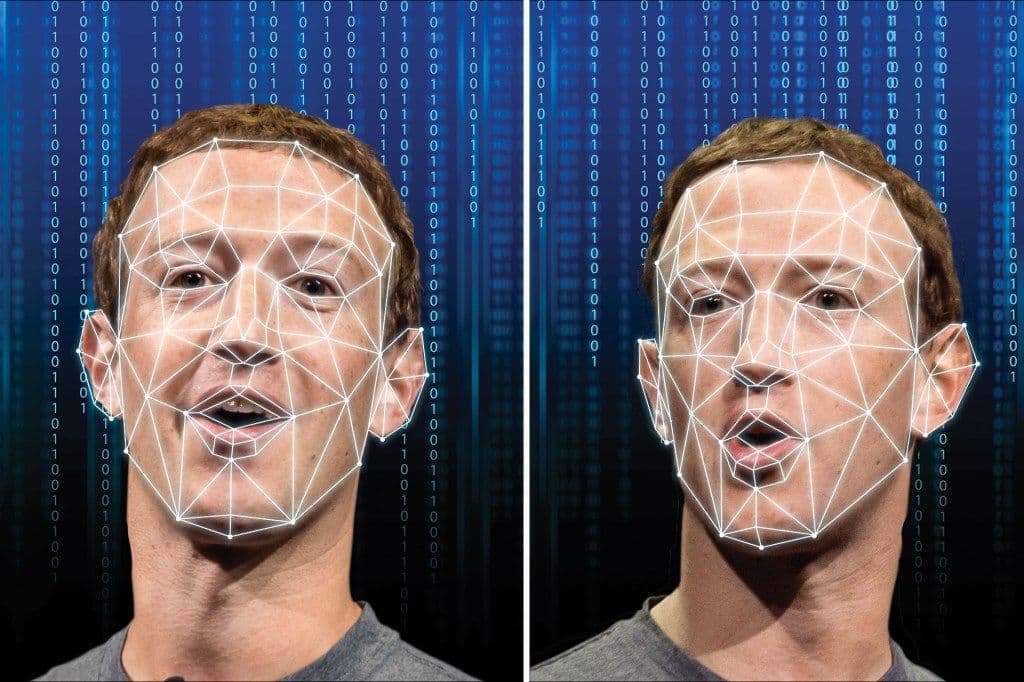Research
Aug 16, 2023Can Blockchain Technology Serve As a Solution to AI's Ethics Problem?
The rapid advancement of AI technology, coupled with the proliferation of deepfake content, has emerged as a substantial threat to the sanctity of identity and the trustworthiness of digital information. As AI continues to advance at a rapid pace, a strong, reliable system to verify authenticity and ensure integrity has become an urgent necessity in our interconnected world.
Blockchain technology, a decentralized and immutable ledger system, offers a formidable solution to these modern dilemmas. Designed with integrity and security at its core, it employs cryptographic principles and consensus algorithms that make it an ideal candidate for tackling the multifaceted ethical challenges posed by AI.
As we explore this powerful technology, we'll look at how blockchain addresses key concerns such as data authenticity, identity verification, and the prevention of fraud. Its transparent nature ensures that all transactions are openly verifiable, while its non-repudiation feature guarantees that once data is recorded, it cannot be altered.
By leveraging these unique properties, blockchain presents a robust and comprehensive framework that responds to the complexities and ambiguities associated with artificial intelligence. Not only does it provide a methodologically sound approach to solving these problems, but it also fosters a new level of confidence in the digital world.
In addition to offering solutions for AI's ethical dilemmas, the implementation of blockchain can pave the way for enhanced collaboration, streamlined processes, and a newfound trust in online transactions. Whether applied in financial services, healthcare, or other industries, the potential of this technology is vast and far-reaching.
Join us as we explore how blockchain technology can reshape our understanding of authenticity and integrity, offering not just a temporary fix but a lasting solution to some of the most pressing challenges of our time. In the age of misinformation and digital deception, blockchain stands as a beacon of hope, guiding us towards a more secure and transparent future.

Understanding Deepfakes and the Rise of Cancel Culture
Deepfakes are AI-driven manipulations of audio and video that can create convincing, yet entirely fabricated content. Deepfakes can be used to create celebrity impersonations, political propaganda, or to falsely represent individuals in a negative light, leading to increased misinformation and the rise of cancel culture, where people are publicly shamed or boycotted on the internet.
A Closer Look at Deepfakes
Deepfakes are not merely a nuisance; they pose a serious threat to society. By convincingly replacing a person's likeness and voice, they can mislead viewers and fuel misinformation campaigns. Whether it's manipulating political speeches or creating fake celebrity endorsements, deepfakes have a real-world impact on trust and integrity.
The Role of AI in Deepfake Creation
Deepfakes are produced using AI algorithms, particularly Generative Adversarial Networks (GANs), where two neural networks (a generator and a discriminator) work against each other. The generator creates fake content, while the discriminator determines if it's real or fake. This iterative process eventually leads to highly convincing deepfake content.

How Blockchain Can Verify Real vs. Fake Content
1. Timestamping and Digital Signatures
Ensuring Content Authenticity
By using digital signatures and timestamps, the blockchain can provide a detailed lineage of content, from creation to modification. This lineage is a powerful tool against deepfakes, as it allows for the immediate verification of originality.
Legal Implications
Digital signatures on the blockchain could have legal standing, similar to physical signatures. This not only reinforces authenticity but could lead to legal remedies if deepfake content is misused.
2. Decentralized Validation
Trust Through Decentralization
In a decentralized system, multiple independent nodes must agree on a transaction or data entry, making malicious manipulation extremely challenging.
Enhancing Democratic Processes
Decentralized validation can protect democratic processes like elections by ensuring that political content, including speeches and endorsements, is authentic and untampered.
3. Content Ownership and Rights Management
Intellectual Property Protection
Blockchain's transparent ledger ensures that content creators can claim and protect their intellectual property, discouraging malicious actors from creating deepfakes from original content.
Fair Revenue Distribution
Transparent rights management can ensure fair revenue distribution for creators, incentivizing genuine content creation and discouraging fakes.
4. Immutable Data Storage
Permanent Record for Verification
The immutability of blockchain ensures that once data is recorded, it can't be altered. This permanence offers a lasting reference point for verification, discouraging the creation and distribution of deepfakes.
Integration with Existing Systems
This immutable storage can be integrated with existing content platforms, providing an extra layer of security against deepfake content.
5. Integration with Machine Learning Models
Robust Verification Mechanisms
AI can be further used to distinguish real content from deepfakes. Integrating machine learning models with blockchain creates a robust verification system, combining the analytical power of AI with the security and transparency of blockchain.
Ongoing Monitoring and Detection
Such integration allows for continuous monitoring and early detection of deepfake content, stopping it from spreading widely.
Challenges and the Path Forward
The implementation of blockchain to combat deepfakes is a complex task requiring collaboration between AI experts, blockchain developers, legal experts, and policymakers. Considerations around scalability, privacy, legal recognition, and international cooperation must be meticulously addressed.
Collaborative Efforts
Governments, institutions, and private entities must work together to create international standards and regulations.
Education and Public Awareness
Public education is vital to ensure that people can recognize deepfakes and understand the importance of blockchain's role in verification.
Challenges and Considerations
While blockchain offers promising solutions, there are still challenges and considerations:
- Scalability: The increased complexity of storing extensive data on the blockchain may lead to scalability issues.
- Privacy: Balancing the transparency of the blockchain with the privacy needs of individuals is crucial.
- Legal and Regulatory Framework: Implementing blockchain solutions for authenticity requires a clear legal and regulatory framework that recognizes and enforces digital rights and obligations.
Final Take
The integration of blockchain technology into the realm of AI, particularly in combating deepfakes and the issues surrounding cancel culture, is a promising avenue for ensuring content authenticity. By employing blockchain's unique features, such as immutability, decentralization, and transparent tracking of content ownership, a resilient system can be built to verify and protect authentic content. However, thoughtful implementation and ongoing collaboration between technology specialists, legal experts, and policymakers will be essential to overcome the existing challenges and unlock blockchain's full potential in addressing AI's ethical dilemmas.
About Chain
Chain is a blockchain infrastructure solution company that has been on a mission to enable a smarter and more connected economy since 2014. Chain offers builders in the Web3 industry services that help streamline the process of developing, and maintaining their blockchain infrastructures. Chain implements a SaaS model for its products that addresses the complexities of overall blockchain management. Chain offers a variety of products such as Ledger, Cloud, and NFTs as a service. Companies who choose to utilize Chain’s services will be able to free up resources for developers and cut costs so that clients can focus on their own products and customer experience. Learn more: https://chain.com.
Connect with Chain for the latest updates:
Twitter: twitter.com/Chain
Telegram: t.me/Chain & https://t.me/ChainAnnouncements
Medium: blog.chain.com
Instagram: instagram.com/Chain
Chain News & Updates
Latest News & Updates
Sign up for the Chain Newsletter - a weekly roundup of new platform features and the latest from the industry.
